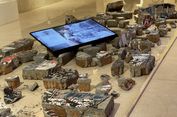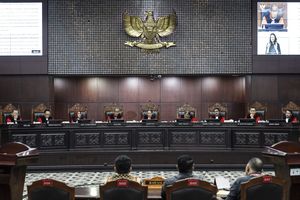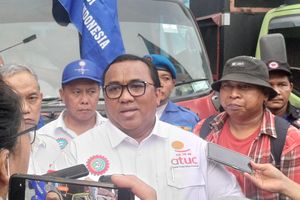Freeport's Cosy Indonesia Govt Ties Not Helping End Strike
JAKARTA, KOMPAS.com - When Freeport renewed its contract for one of the world’s biggest copper and gold mines, some of Indonesia’s top officials were on hand at the celebration, cheerfully applauding the CEO’s impersonation of Elvis Presley.
Some 20 years, and several Indonesian presidents, later, that cosy relationship with the government in Jakarta is doing little to help resolve one of the resource-rich country’s worst industrial disputes.
It may well be a hindrance. The strike at Freeport McMoRan Copper & Gold Inc ’s Grasberg mine in the remote eastern province of Papua shut down production in mid-September, though the firm says it is back producing at reduced levels after sabotage to its main pipeline on Monday.
The dispute over pay has also drawn in local tribesmen, with their own grievances over land rights and pollution, armed with spears and arrows to join Freeport workers blocking the mine’s supply roads for food and fuel this week.
The company’s relationship with the central government stretches back to the 1960s when autocratic President Suharto was in the early years of his long rule. It was a rule, which ended in 1998 in the wake of the Asian financial crisis, when a major project without involvement of the country’s elite was unthinkable.
Freeport still has close ties with a government that keeps tight military control over Grasberg, which holds more gold than any other mine in the world, and the rest of its easternmost and independent-minded Papua province, to safeguard its vast reserves of natural resources.
The snag now for the Phoenix, Arizona-based company is that Jakarta, lord of all the archipelago during the Suharto era, has since handed over political authority to a locally elected governor.
“Things are different now. The central government doesn’t have the same power it used to have ... Now the power to deal with the strike and pay dispute is in the hand of the local government but they just don’t do that,” said Yunarto Wijaya, an analyst from Jakarta-based think tank Charta Politika.
But Wijaya says the local government simply does not have the power to negotiate with Freeport. And the central government’s failure to help despite sending in officials to mediate, has only added to the resentment.
Indonesia’s government owns about 9 percent in Freeport Indonesia, which contributes 1.6 percent of GDP in Southeast Asia’s top economy, and its inability to broker a deal to resolve the dispute is painful.
Freeport still beat Wall Street…







































